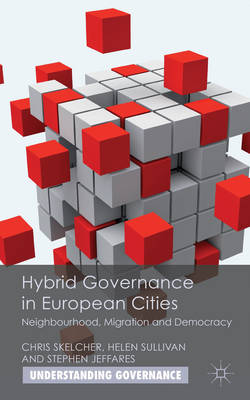How are responses to urban policy challenges affected by new ideas about governance? How can we explain the governance transformations that result? And what are the consequences for democracy? This wide-ranging study of three European cities - Birmingham, Copenhagen and Rotterdam - shows how hybrid forms of governance emerge from the tensions between new visions and past legacies, and existing institutional arrangements and powerful actors. Hybrid governance includes public-private partnerships, stakeholders boards, and multi-actor forums operating at arm's length to institutions of representative democracy. Offering detailed studies of migration and neighbourhood policy, as well as a novel Q methodology analysis of public administrators' views on democracy, the book explores how actors generate new practices, shows how these develop, and evaluates the democratic implications. The book concludes that hybrid governance is both widespread and diverse, is spatially and policy specific and that actors - public managers, politicians and the public - contribute to hybrid designs in ways that promote and challenge democratic conventions.
- ISBN10 1137314788
- ISBN13 9781137314789
- Publish Date 7 February 2013 (first published 1 January 2013)
- Publish Status Active
- Publish Country GB
- Imprint Palgrave Macmillan
- Format eBook
- Pages 200
- Language English
